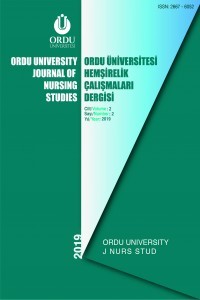
Ordu Üniversitesi Hemşirelik Çalışmaları Dergisi
Yazarlar: Ayşe İNEL MANAV, Adile BOZKURT, Ejdane COŞKUN
Konular:Hemşirelik
DOI:10.38108/ouhcd.816449
Anahtar Kelimeler:Older people,Personal meaning profile,Psychological well-being
Özet: Objective: The research was conducted to determine the personal meaning profile and psychological well-being levels of the older people. Methods: This descriptive-cross-sectional study was conducted on 27.07.2020-30.09.2020 in the central district of Osmaniye Sampling of a minimum of 353 individuals with a 95% confidence interval and 3% margin of error was deemed appropriate to represent the population. 440 elderly individuals were included in the study. The data were collected by Personal Information Form, Personal Meaning Profile Scale and Psychological Well-being Scale. Data; Student's t test, One Way Analysis of Variance, Pearson correlation coefficient, Multiple Linear Regression Analysis has been evaluated by tests. Statistical significance level was taken as 0.05. Results: It was determined that there is a significant positive correlation between the mean scores of the Personal Meaning Profile, Relationships, Religion, Self-transcendence, Self-acceptance and Closeness sub-dimension and the Psychological Well-being Scale total score averages of the older people (p<0.05). The total average score of the Personal Meaning Profile decreases significantly in those with lower income, smokers, mental disorders and physical disabilities (p<0.05). The Personal Meaning Profile total score average of the older participants who graduated from high school and those with chronic diseases increased significantly (p <0.05). Conclusion: It was found that the personal meaning profiles and resources of the older people improve their psychological well-being. It was found that some sociodemographic characteristics of the older people also affect their personal meaning profile.